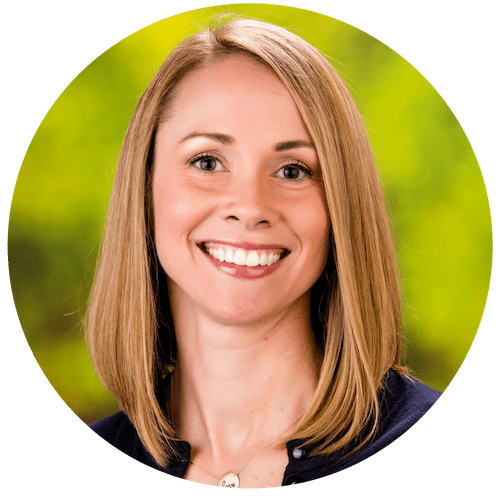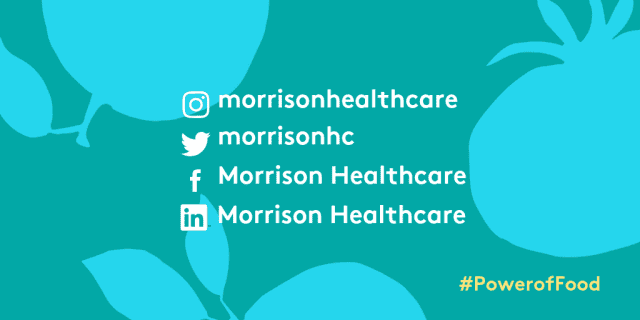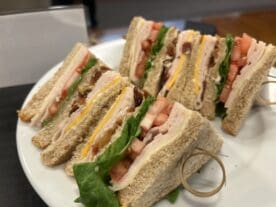Marketing “The Power of Food”
A Q&A with Nikki Poole, VP of Marketing and Innovation for Morrison Healthcare, and Chelsea Edwards, Social Media Manager, Compass One Healthcare
Nikki Poole is responsible for creating and executing Morrison’s brand and sales strategy while Chelsea Edwards harnesses the power of social media to tell our brands’ story and recognize Compass One Healthcare associates who are helping patients heal faster and empowering others to be well.
Q: Nikki, describe the marketing department’s responsibilities.

We’re at the front of the ship, so to speak, developing Morrison’s marketing strategy, and working in collaboration with leadership and our operators. We handle all brand, digital and sales strategy and research, and Kevin Dorr and I work together on our retail marketing strategy. In addition, we’re also constantly looking at market trends in food and healthcare, and our competition, to ensure that we are steering the ship in the right direction.
Q: We hear a lot about the ‘hospital of the future’. What is it and what does it mean for us?
We’ve done a ton of research and believe hospitals will likely choose one of two paths to serve people in the future. One group will choose to treat the sickest of the sick. The other may offer care to everyone in the community across a broad continuum – they will provide wellness centers, urgent care centers and other specialized services.
For example, as part of the CVS-Aetna merger, CVS may turn its minute clinics into urgent care centers. The merger may blend services offered by a hospital and retailers. So, we try to examine the impact on us. For example, does it mean we need to be more convenient and put micro-grocery stores into these areas.
Q: When deciding on a marketing strategy, do you rely heavily on data analytics?
Yes. Every project we work on, such as a strategy for new business, every decision is based on facts and analytics. We need to know trends to help us understand the community and how to build our retail business. For example, even when we are building a patient menu, we study the keywords that make them the most comfortable. With the right data, we can put together a solid strategy on just about anything.

Q: You talk a lot about positive disruption in our business. What does it mean?
Companies such as Amazon, Uber and Apple have disrupted markets by solving problems consumers didn’t know they had. They looked at how to innovate and separate themselves from the competition, and we need to do that, too.
I’ve been studying the new healthcare partnership formed by Amazon, Berkshire Hathaway and JPMorgan Chase to cut healthcare costs. They are working with physicians to write prescriptions that fit an associate’s specific diet and medications that will be filled by Amazon. So, the steps they are taking may disrupt the healthcare market.
For us, there could be an impact. For example, since insurance companies are beginning to see food as medicine since it could be lower rates of hospital admissions. This fits perfectly with our Power of Food brand. By streamlining our marketing approach, we can play a larger role. And social media is a huge part of this strategy.
Q: Chelsea, how does social media help market Morrison Healthcare and Compass?
Our communications team is always looking to promote our business and add value for our clients. Social media accomplishes those goals by developing partnerships with others that have invested in a social media presence. We serve several large hospitals and healthcare systems that are very active on social media.
We are in regular contact with their communications team to share blogs and other content that gives people information about food and how it helps patients and others looking to improve their health.
This shows our clients we value their partnership by thinking ‘outside the box’ of what a partnership looks like. When we say Morrison Healthcare or Crothall Healthcare are good business partners, it goes beyond our day-to-day food and support operations and extends into how we can reach people through social media.

Q: Nikki, how important is interaction with people in the field?
Our operators are our ‘boots on the ground’. Based on the marketing tools we provide them, I’m always looking to find out what is working and what isn’t. And we’re always looking for case studies to demonstrate how we work together with our clients to achieve common goals.

We’re nearly halfway through this fiscal year and already planning for 2020, so I’m looking for new ideas on the retail and patient side to help them continue to be successful. Please feel free to send along any ideas to [email protected].
Got more questions for Nikki? Tweet us @MorrisonHC and use #AskMorrison.


